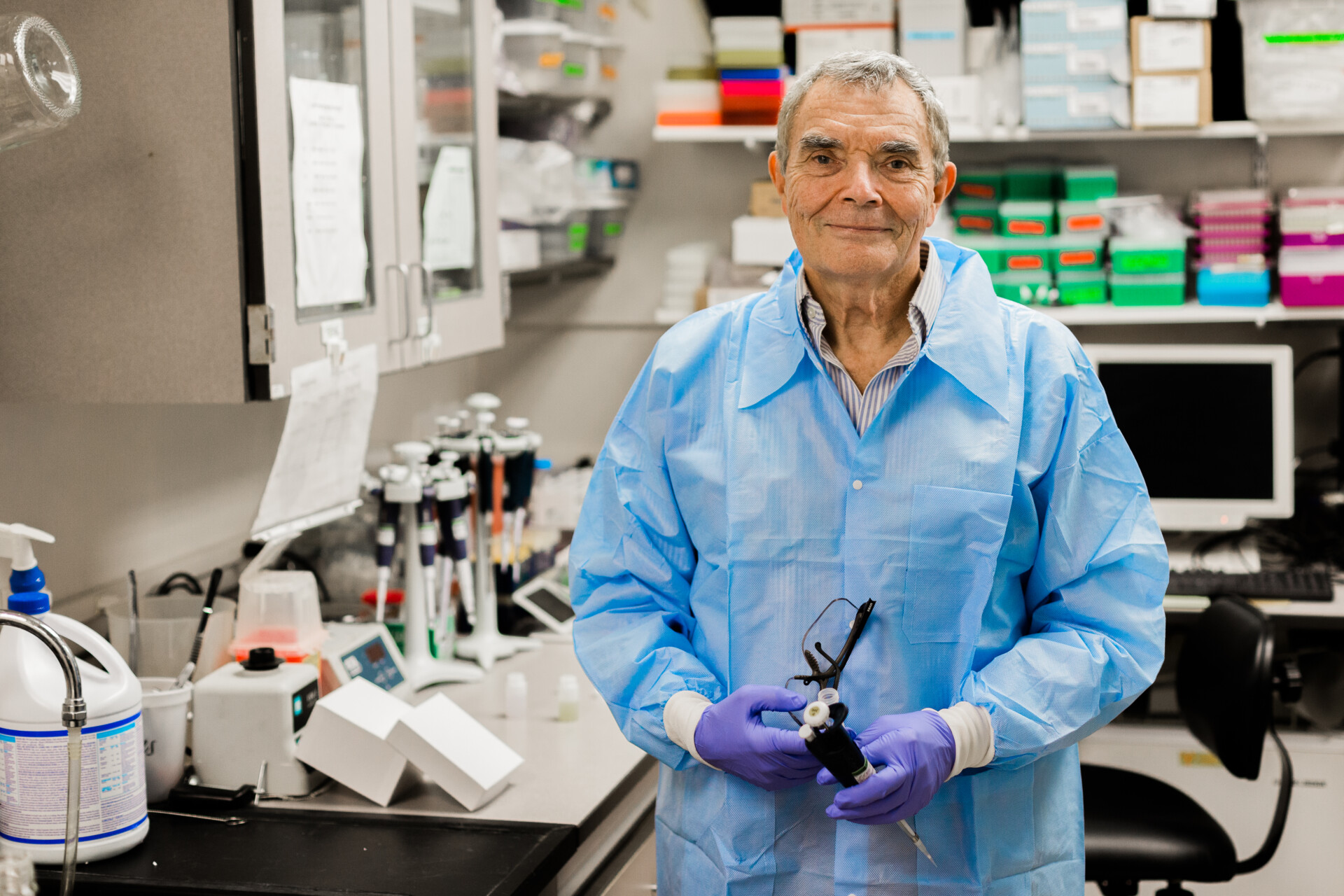
The key to healthy aging?
Beans, beans and more beans (and some tea), CSU professor says
story by Christopher Outcalt
published Feb. 1, 2024
Henry Thompson, director of Colorado State University’s Cancer Prevention Laboratory, joined the College of Agricultural Sciences more than 20 years ago, and has been researching the healthy benefits of dry beans just about ever since. “We should be having beans in everything,” he said. “Bean smoothies, bean bread, bean muffins.”
It was a colleague who first suggested Thompson look into the benefits of the dry, edible seeds of legume plants known as pulses. (In addition to beans, other types of pulses include chickpeas, lentils and dry peas.) Since then, Thompson has traveled the world preaching the dry-bean gospel.

Thompson, as well as CSU doctoral degree recipient Chelsea Didinger, have published numerous papers on the role pulses can play in improving human health, including a comprehensive article in the journal Legume Science in 2022. Thompson recently embarked on a new trial that will examine the impact on people who go from eating little to no beans at all to eating a can of beans per day.
Here are some of the highlights from Thompson and Didinger’s Legume Science paper and some of Thompson’s other published work.
- Pulses have been shown to reduce risk of obesity, which is a precursor to type 2 diabetes, heart disease and certain types of cancer.
- Pulses are good sources of both complex carbohydrates, dietary fiber and protein. What’s more, pulses have significantly more fiber than whole grains.
- “To increase fiber without overconsuming calories, it is essential to prioritize nutrient-rich, whole foods like pulses,” Thompson and Didinger wrote in Legume Science.
- The average American adult diet includes less than one cup of pulses per week, according to the U.S. Department of Agriculture.
- Pulses may be particularly beneficial in combating cardiovascular disease, a leading cause of death worldwide.
- “Pulse consumption appears to lower cardiovascular disease biomarkers, suggesting it may be a cost-effective dietary strategy to help prevent the disease,” Thompson and Didinger wrote.
- Dry beans and other pulses are relatively affordable and accessible.
Healthy tea extract
Thompson has also recently co-authored two papers that examine the healthy benefits of tea in combating Alzheimer’s disease, a common cause of dementia, in a preclinical model.
In one study, Thompson said, mice developing Alzheimer’s that were given a green tea extract for two to four months performed better on a maze test designed to demonstrate memory ability and spatial learning. In the other study, a large-leaf yellow tea extract inhibited the development of Alzheimer’s, and researchers were also able to identify some of the mechanisms that made the extract successful.
“I tell all my colleagues about it,” Thompson said. “I’m taking a tea extract every day.”
Healthy Aging
As a land-grant institution, Colorado State University is dedicated to serving as a catalyst for interdisciplinary research and community outreach, so that people can live the healthiest and most productive lives possible. This special report from SOURCE explores the work happening at CSU and provides insights into active aging.





